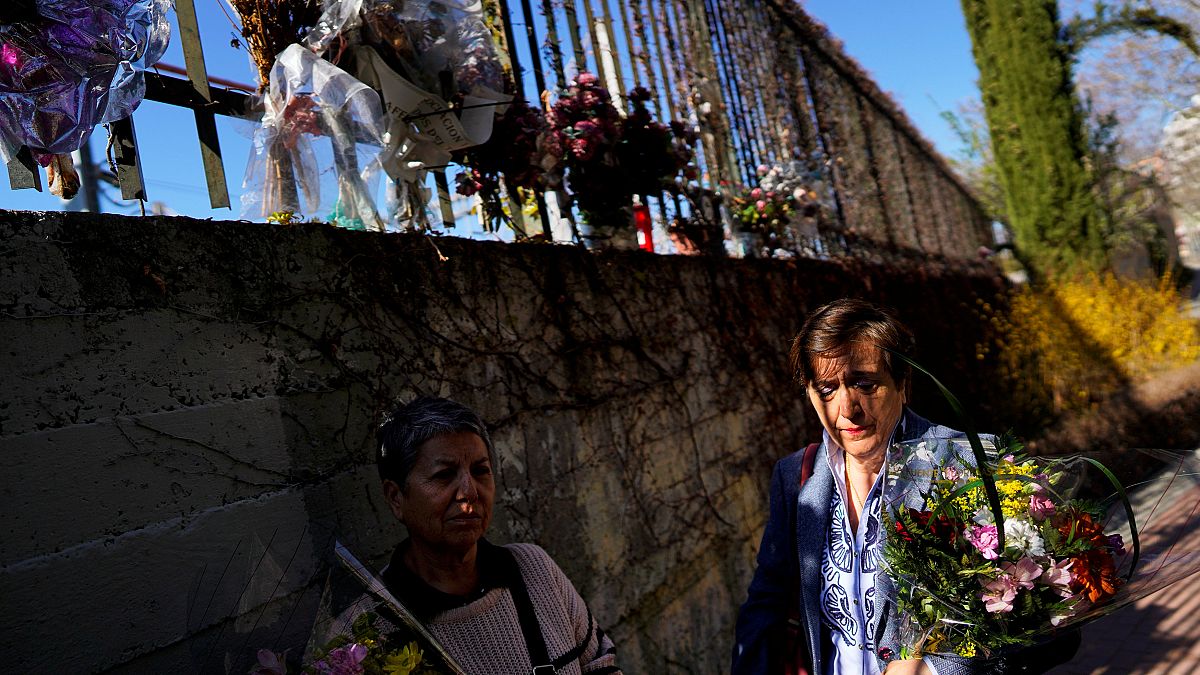Fifteen years after the Madrid train attacks on March 11, 2004, jihadists in Spain are younger and mostly hail from second generation immigration communities.
On March 11 2004, an Al-Qaeda detonated ten bombs in different Madrid-bound trains — the deadliest attack in Europe with 192 victims and more than 1,800 injured.
Fifteen years later, and after Barcelona and Cambrils also suffered attacks in 2017, jihadism in Spain is a more endogenous phenomenon concerning younger people, according to a report titled "Jihadism and Jihadists in Spain, 15 years after March 11" by the Real Instituto Elcano (Elcano Royal Institute).
Authors Fernando Reinares, Carola García-Calvo and Álvaro Vicente analysed the profiles of Spanish jihadists who’ve died in Spain from 2004 to 2018. Here are their main conclusions:
1) From Al-Qaeda to the so-called Islamic State (IS)
Research points to the fact that, contrary to what the majority of Spaniards might think, jihadism was present in Spain before the March 11 attacks. The first al-Qaeda cell in Spain dates back to 1994.
“In 1994, the jihadist organisation established in Spain one of the first and most significant cells in all of occidental Europe,” said the researchers.
The study isolated two main time frames of jihadism in Spain, which coincide with the evolution of the phenomenon on a global scale.
The first time period, which starts in 1994 and ends in 2011, was a product of political instability in North Africa and the Middle East as well as the leadership of Osama bin Laden — the founder of Al-Qaeda.
The second time frame started in 2012 with the beginning of the Syrian civil war and culminated with the inception of the so-called IS.
2) Jihadism becomes an endogenous phenomenon
The researchers said that “jihadists stopped being first-generation immigrants from Muslim countries”. From 2012, six out of ten were second-generation immigrants of Arabic descent but born or brought up in Spain.
This sector of the Spanish population's vulnerability to radicalisation is linked to the “complex balance between cultures that affect them and makes them prone to problems of identity,” which was the case of the jihadists responsible for the 2017 terror attacks in Catalonia in which 16 people died, argued the study.
Though only one of the attackers had Spanish nationality, all of them had grown up in Ripoll, Gerona.
3) Young jihadists
While the perpetrators of the March 11 attacks were between the ages of 20 and 30 years old, those that carried out the attacks in Barcelona and Cambrils were mainly minors.
The study found that the median age for jihadists went from 33,6 to 29,2 in the period between 2012 and 2017. During the same period, two out of ten attackers hadn’t turned 21.
This is relevant given the global phenomenon in which teenagers from Arab descent have become more vulnerable to radicalisation.
4) Catalonia — the centre of endogenous jihadism
Just over a third of the jihadists in the study lived in Catalonia between 2004 and 2018, which the researchers designated as the centre of endogenous jihadism in Spain due to the high concentration of Salafist Muslims.
“In 2016, a third of the 256 religious sites and Islamic religious centres registered in Catalonia were controlled by Salafists, more than double than those in 2006,” said the researchers.
5) The symbolism behind Al-Andalus
The researchers believe that Spain won’t stop being a target of terrorist attacks, not only because Spain is an “occidental nation determined to fight against violence inspired by religion” but also the fact that Al-Andalus is “a usurped Muslim territory”.
In fact, the March 11 terrorist cell named itself the “brigade working from Al-Andalus” and that of the 2018 attacks called themselves “Soldiers of the Islamic State in the land of Al-Andalus”.
Al-Andalus was a medieval Muslim-controlled territory that in its early period occupied most of Iberia in today's Portugal and Spain.
